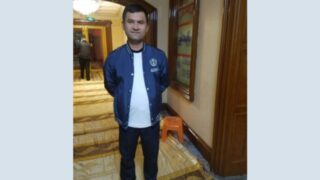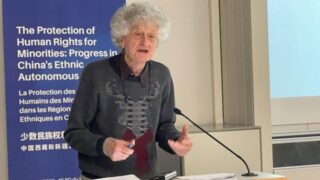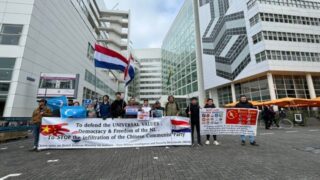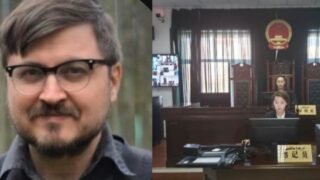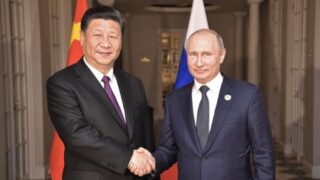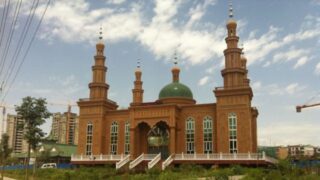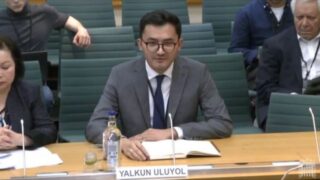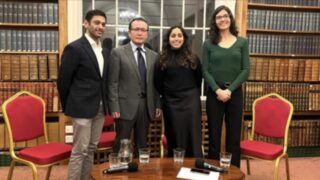Detainees are photographed with their jackets draped over their shoulders. This has a precise humiliating meaning in both Uyghur and Chinese culture.
by Kok Bayraq


When it comes to inhuman scenes in the Xinjiang Police Files, most people may think of the elderly, children in tears, and anxious faces among detainees. For me, as a Uyghur reporter, another scene came to my mind—detainees with jackets draped over their shoulders and open, wrinkled collars.
Draping a jacket over one’s shoulders in public is considered a disgrace in Uyghur society, especially for women. It is not considered acceptable by the Chinese state code either.
Therefore, the pictures in the police files containing a group of women with jackets (likely provided by the police) draped over their shoulders show what is obviously an extraordinary situation.


In the middle of 2017, a group of police took a woman who will become a “student” in the transformation through education camps named Gulnar Emet from her home in sleeveless pajamas. Her father took her jacket and ran after the police, asking them to let her wear the jacket. The police answered by firing into the air. In response, her father fainted, and her mother and siblings screamed in the yard. The police? They simply drove away with Gulnar in her pajamas.
This is not a movie depiction; it is part of a Radio Free Asia’s report in which the police describe the scene to a reporter.
Therefore, the detainees in the file who had jackets draped over their shoulders were likely pulled from their beds and taken to a camp in their pajamas or wearing something meant only for their homes, just like Gulnar.
In the case of Gulnar, a police officer commended his colleagues for their mercy in handling “the incident without conflict or bloodshed [in front of] the family members of the detainee.” Clearly, this had not been the case in other “student” recruitment operations. The order to “shoot those who try to escape” by Chen Quanguo, former boss of the CCP in “Xinjiang,” which is also disclosed in the files, proves the inevitability of bloodshed. Logically, the order given to those who try to escape can also be applied to those who refuse or are reluctant to go to “school.”
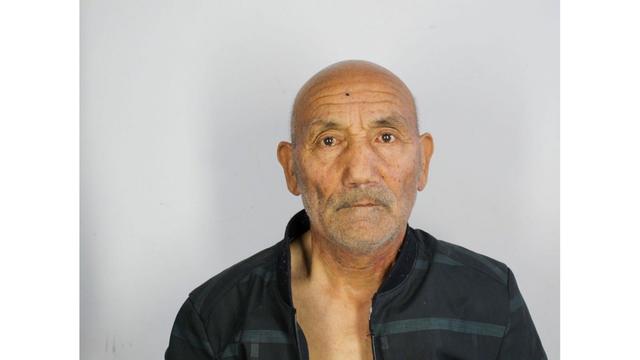

From this perspective, the clothes underneath the draped jackets may have been stained when the detainees were taken or interrogated. The stains could be blood, mud, chemicals, or the result of procedural forced feeding.
The files contain a series of pictures of male and female “students” with open and wrinkled collars. While their situation may not be as serious as the previous group, they may have been suddenly removed from their homes without the opportunity to change their clothes. Clearly, their treks to the camps were not voluntary or taken at the urging of their families, as stated in the official Chinese narrative. This is an indication that their house was besieged by the police in the middle of the night, and that the police may have broken in and pulled them from their beds.
Our friend, poet Tahir Hamut, who is currently living in America, said that before leaving “Xinjiang,” he slept in full clothes for six months and kept a blanket over his head. He learned this lesson in 2017, when he and all his friends in Urumqi were preparing for possible detention. They wanted to avoid being in a cold cell for weeks, wearing thin or sleeveless clothes.


The detainees with jackets draped over their shoulders were either unprepared or thought that their innocence would save them.
In the RFA report, the reporter asked the police officer in Kashgar, “Why are students wearing black bags on their heads?”
“To avoid resistance.”
“Well, after the handcuffs are on, why isn’t the black bag taken off?”
“So that they don’t know where they’ve been brought.”
“Why is this necessary?“
“[To] cause panic in [them] and their family.”
“Why is this necessary?”
“To let them feel the power of the state.”


The detainees in Kashgar and Tokkuzak, to which the files belong, are not as sophisticated as Tahir Hamut’s friends in Urumqi (the capital of the region); 99% of the detainees are peasants.
They may not have known that their ethnic identity has so much power to be seen as a weapon that makes a state scary.
They may have thought that a country claiming to be the world’s superpower would not show its power to a peasant who had no tools other than a shovel.
They might have believed that no superpower in the world could permanently detain millions of innocent people, and that international justice and human conscience would not allow it.
They have now learned this information through their inhumane circumstances.


There is a proverb in Uyghur that says, “There is a man in a bad coat,” meaning that clothing is the mirror of one’s past—the materialized state of one’s soul. Thus, beneath each draped jacket and open, wrinkled collar is a spirit that believes in its own righteousness, the greatness of humanity, and international justice.


